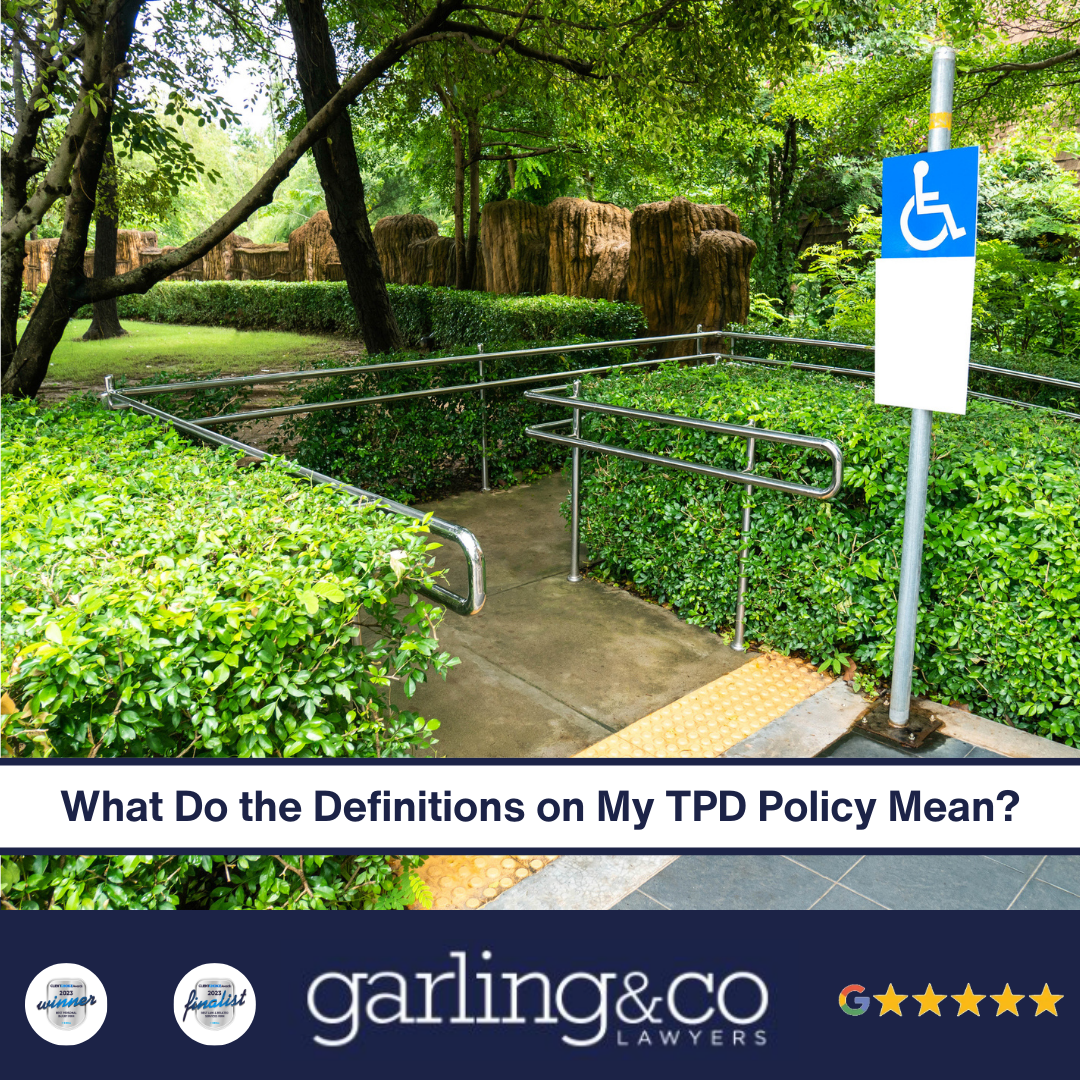
If you are TPD you may be eligible to claim compensation (money) under your TPD policy.
TPD policies and insurance policies generally are complex and difficult to understand. To make things more complicated, each insurance policy has a different set of terms and definitions. What may be the TPD definition under one policy may be entirely different on another policy.
Why is this important to understand the terms of a TPD policy?
It is important to know what the terms in your TPD policy mean as they determine whether you are eligible for TPD compensation.
We have created a list of the most commonly used terms found in TPD policies to make it easier for you to understand your rights and entitlements.
Understanding TPD Terms and Definitions
Unlikely Ever:
Example: “An insured person is Totally and Permanently Disabled if, in our opinion, the illness or injury means that the Insured Person is unlikely to ever work in or attend their usual professional occupation…”
The best way to understand this definition is to look at your capacity to return to work. If there is a chance that you will return to work, even if that chance is less than 50/50 you will not be able to claim TPD benefits.
To be unlikely ever sets a very high threshold. It means that there is almost certain that you will never return to gainful employment as a result of your illness or injury.
To combat this definition, you need to look at the real likelihood of re-entering employment in the future and also address the prospects of being able to undertake the actual employment.
For example, if you may be able to return to work in the future but will require periods of time of work to recover when your symptoms are aggravated you would probably still satisfy unlikely ever and be able to claim your TPD benefit.
Unable Ever:
Example:“Total Disability and Totally Disabled means that as a direct result of suffering an illness or injury an Insured person is unable to ever perform at least one income-producing duty of their regular occupation…”
You are incapable of returning to employment. To combat a term like this it is best to have you’re treating practitioner or an expert report that you are “incapable to ever return to gainful employment”
“Unable ever” does not mean the employment in its entirety so when challenging a decision based on this term, you will need to establish that you cannot undertake certain aspects of the employment.
Retraining:
Example:“In determining our opinion on Total Permanent Disability we will have regard to factors including but not limited to; any retraining or re-skilling that could reasonably be expected to be undertaken by the Insured Member.”
Most TPD definitions have a term that states if you are able to be retrained in any form of employment you will not satisfy the definition for TPD and be eligible for benefits. The Courts have determined that retraining must be reasonable.
If the TPD insurer finds that you can be retrained you may be able to challenge this decision by proving that you are not suited for the training proposed and even if retrained would be precluded from employment due to the nature and extent of your injury or illness.
To challenge the insurers decision based on reasonableness you will need to consider the cost of retraining, the time it will take to be adequately trained, your age and the benefit of retraining, and the connection between previous employment and proposed employment. It may also be necessary to get an opinion from an occupational therapist.
It is important to keep in mind that a short course or training to obtain a licence or labouring ticket is not unreasonable, so long as once obtained you are fit and able to undertake the work.
As can be seen from these definitions, TPD claims are complex. In order to make the claims process smoother and less stressful we advise seeking the assistance of a lawyer to help you complete your claim form, obtain the right medical evidence the first time, and if necessary, request a review decision or take your claim to Court.












